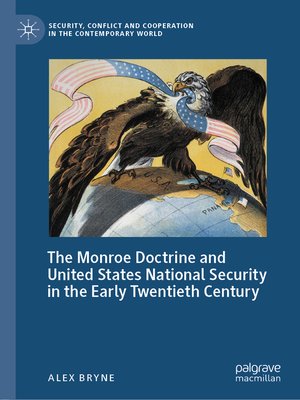The Monroe Doctrine and United States National Security in the Early Twentieth Century
ebook ∣ Security, Conflict and Cooperation in the Contemporary World
By Alex Bryne

Sign up to save your library
With an OverDrive account, you can save your favorite libraries for at-a-glance information about availability. Find out more about OverDrive accounts.
Find this title in Libby, the library reading app by OverDrive.



Search for a digital library with this title
Title found at these libraries:
| Library Name | Distance |
|---|---|
| Loading... |
This book demonstrates that during the early twentieth century, the Monroe Doctrine served the role of a national security framework that justified new directions in United States foreign relations when the nation emerged as one of the world's leading imperial powers. As the United States' overseas empire expanded in the wake of the Spanish-American War, the nation's decision-makers engaged in a protracted debate over the meaning and application of the doctrine, aligning it to two antithetical core values simultaneously: regional hegemony in the Western Hemisphere on the one hand, and Pan-Americanism on the other. The doctrine's fractured meaning reflected the divisions that existed among domestic perceptions of the nation's new role on the world stage and directed the nation's approach to key historical events such as the acquisition of the Philippines, the Mexican Revolution, the construction of the Panama Canal, the First World War, and the debate over the League of Nations.







